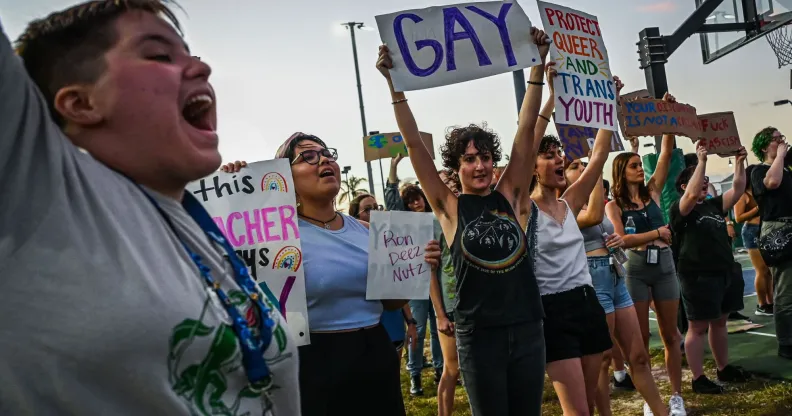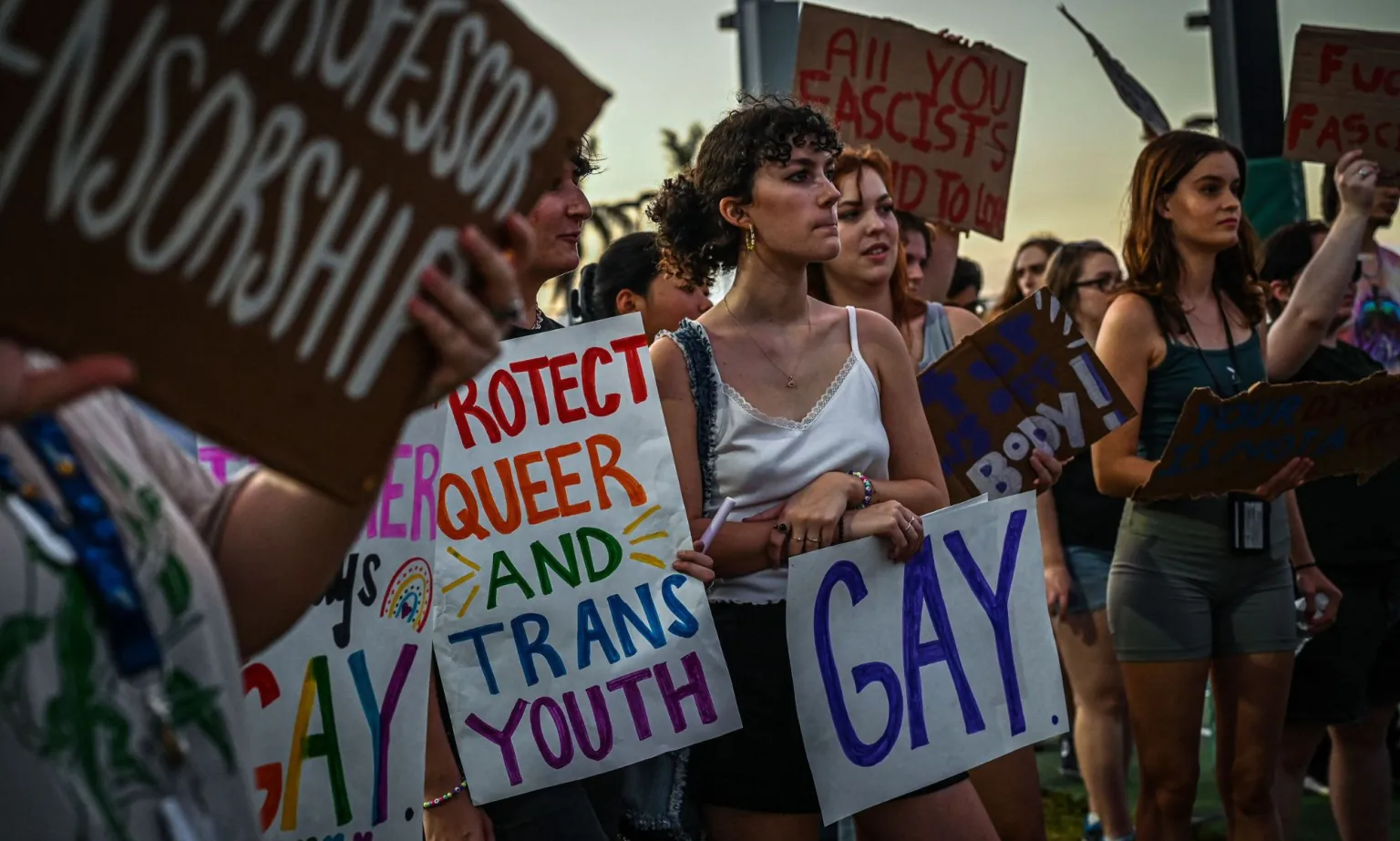Florida high school students say their play was shut down due to vile Don’t Say Gay law
High school students alleged their upcoming theatre production was shut down in an act of anti-LGBTQ+ censorship because of Florida’s ‘Don’t Say Gay’ law.

Students at Douglas Anderson School of the Performing Arts, a magnet high school in Jacksonville, Florida, were set to perform Paula Vogel’s play Indecent starting 1 March.
The 2015 play recounts the controversy surrounding the play God of Vengeance in 1923, which saw cast members being arrested on obscenity charges. Notably, the work included a queer Jewish couple at the heart of its story.
Cast members of Douglas Anderson School of the Performing Arts’s production of Indecent said they were told by school administrators the production was being cancelled because of the script’s content.
Madeline Scotti, a senior at the high school, was set to play one of the lead roles in the production. Scotti told Teen Vogue that the cast discussed being “Don’t Say Gay-ed” after getting the news.
“It’s baffling that a show written about the detrimental effects of censorship is being censored,” Scotti said. “What about love should be censored? How is this impure?”
Duval County Public Schools told the outlet that the show’s cancellation was related to its “adult sexual dialog” rather than Florida’s ‘Don’t Say Gay’ law. The schools’ spokesperson Tracy Pierce claimed such content is “inappropriate for student cast members and student audiences”.
“It’s that simple,” Pierce said. “The decision has no relevance to any legislation but is rather a function of our responsibilities to ensure students engage in educational activities appropriate for their age.”
However, the theatre students don’t believe the school district’s reasoning. They highlighted how the school hosted previous productions, including RENT and Chicago, with mature themes.

“The idea that the contents of Indecent are somehow uniquely mature borders on farce,” Jackson Moser, another high schooler, told Teen Vogue.
“Our school has produced story after story, many of them containing adult content….The truth is, this story is being silenced.”
Scotti shared a post on Instagram announcing the cancellation, and they said the company was notified that Indecent would be shut down “not because of, but related to the ideals stated in the ‘Don’t Say Gay’ bill”.
“Indecent is a story about how detrimental censorship is, about how its damaging effects can ruin a nation and a community. I don’t need to point out the irony,” they said.
Scotti continued: “They are trying to tell us this play is dirty, immoral, obscene, and, of course, indecent.
“And by that nature, they’re trying to tell me that I myself and my community is dirty, immoral, obscene, and indecent. And I don’t have a reason.”
Scotti described Indecent as being about the “purity of love, the strength within a community and the shallowness of those who try to silence identity”.
Ver essa foto no Instagram
The high school student noted Douglas Anderson’s production of Indecent was set to open in the same week as the 100th anniversary of Sholem Asch’s God of Vengeance being shut down on Broadway.
“100 years, and we are still fighting the same injustice that Sholem Asch and his company did,” they said.
The Indecent playwright herself shared her support for the Florida high school students online.
“To the students at Douglas Anderson High: I am sorry your superintendent cancelled Indecent,” Vogel wrote, via the Indecent on Broadway Instagram account.
“You know how beautiful I think love is for all souls. But I also want you to know how much love I feel for the world as jew. I am proud of my love and my faith, and I am so proud of all of you.”
Vogel also tweeted to the school’s leadership, asking why the decision was to cancel the play rather than “structuring post-play discussions”.
“It is a unique way to look at the Holocaust as well as gender and censorship and antisemitism,” Vogel wrote.
“What a field day for education! I believe your students are young artists who can more than handle the conversation. It would be great for the parents too. And I am more than willing to come down for the conversation.”

Comments are closed, but trackbacks and pingbacks are open.